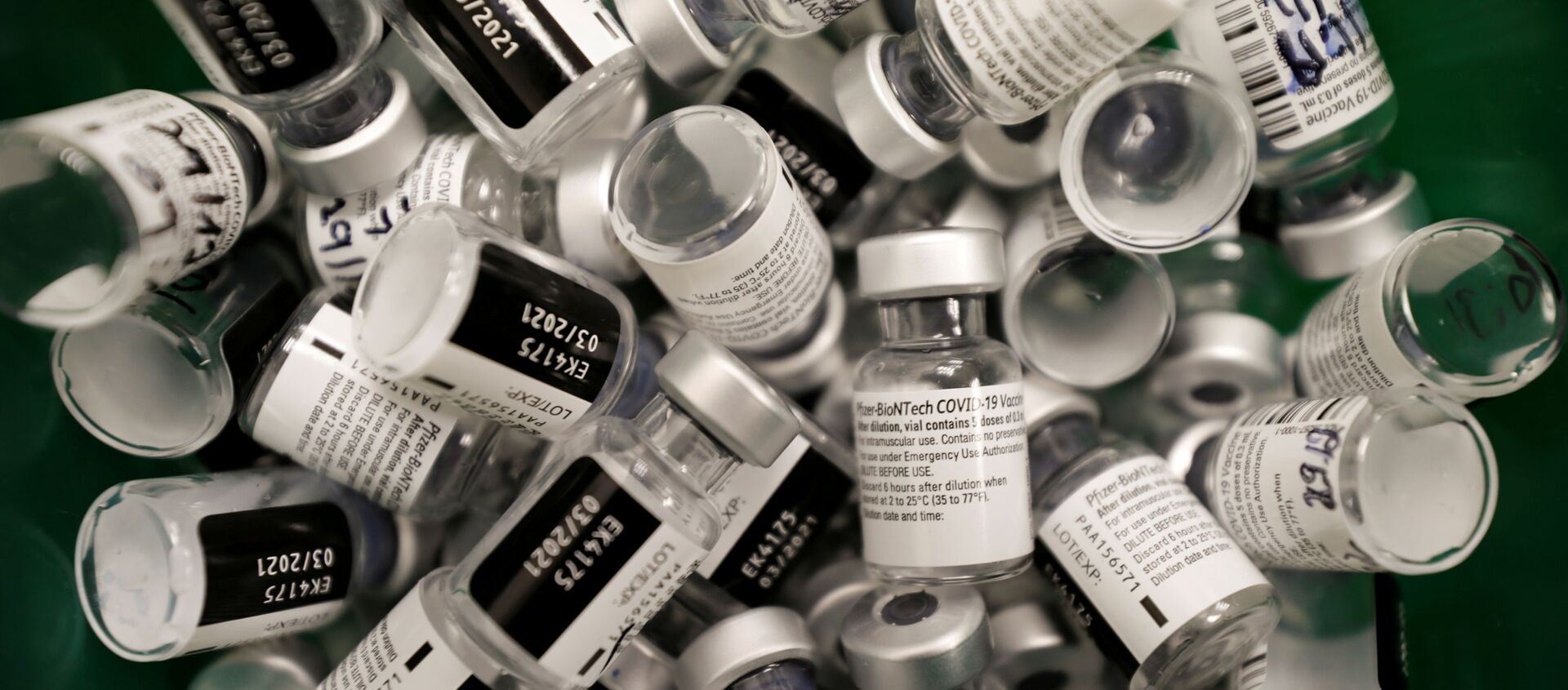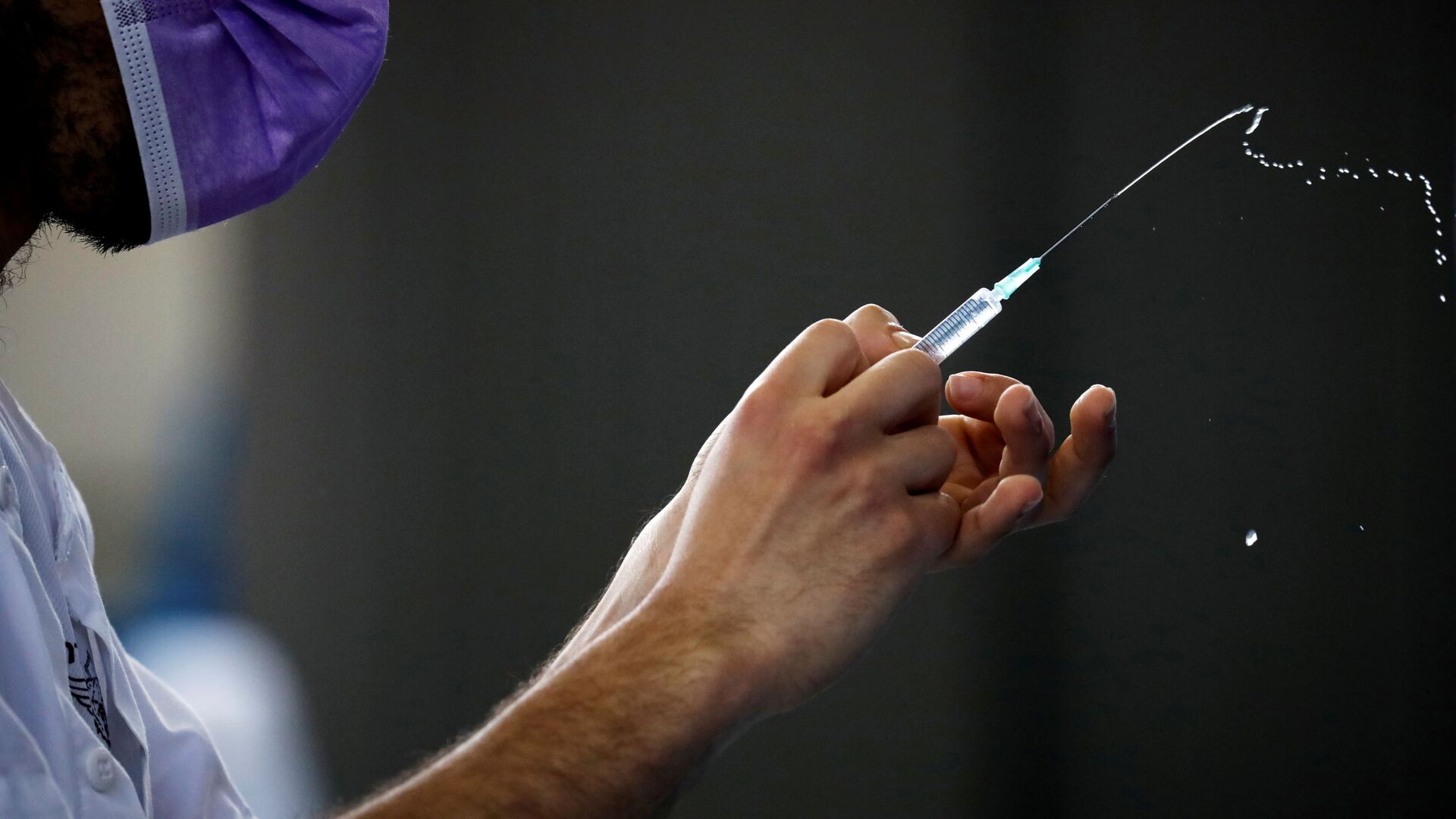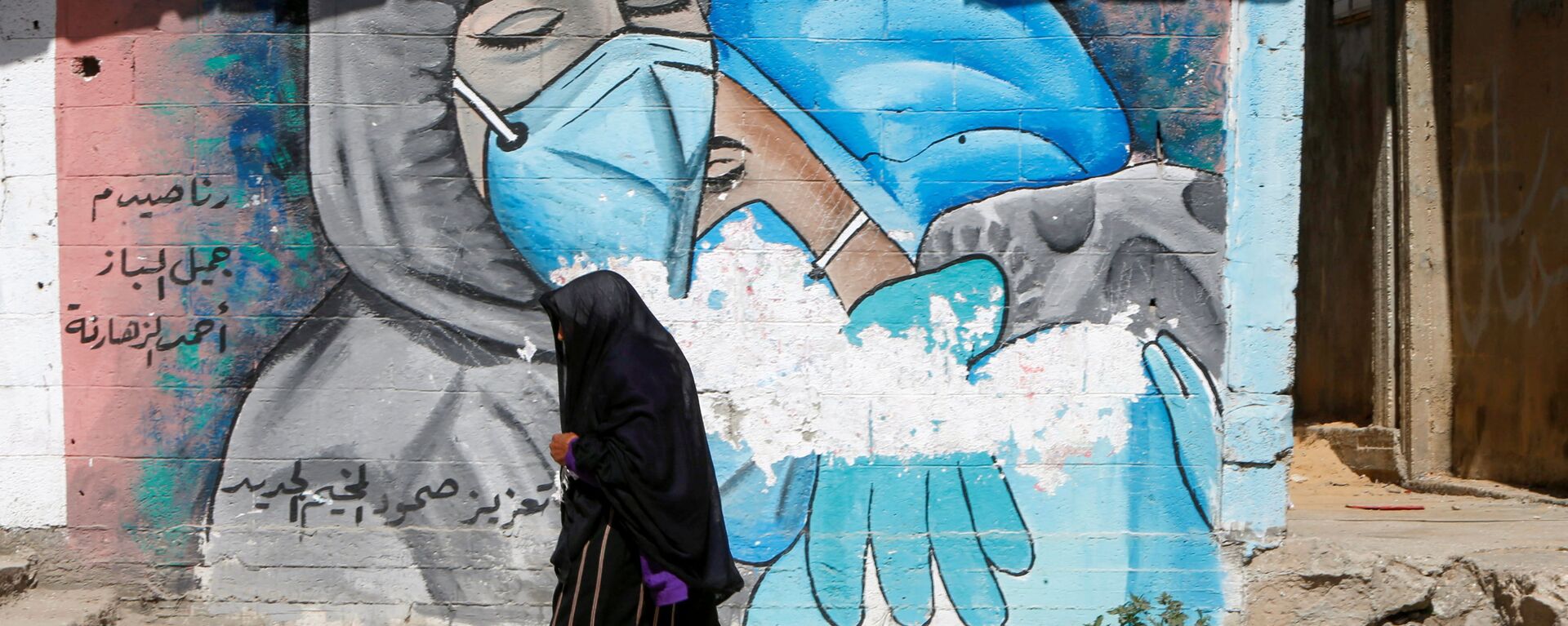https://sputnikglobe.com/20210829/arabs-in-israel-arent-rushing-to-get-vaccinated-heres-why-1083743693.html
Arabs in Israel Aren’t Rushing to Get Vaccinated, Here's Why
Arabs in Israel Aren’t Rushing to Get Vaccinated, Here's Why
Sputnik International
The country's health organisations have taken various measures to encourage Arabs, which make up some 20 percent of the total population, to get inoculated... 29.08.2021, Sputnik International
2021-08-29T05:28+0000
2021-08-29T05:28+0000
2021-08-29T05:28+0000
middle east
world
newsfeed
vaccine
vaccination
covid-19
coronavirus
israel
arabs
https://cdn1.img.sputnikglobe.com/img/07e5/02/14/1082137967_0:160:3073:1888_1920x0_80_0_0_2ce8ed8b7521cf1411a6b98cedf08e74.jpg
In Israel, authorities are continuing with their mass vaccination drive, expanding the age of those eligible for the shot to 30 years old and above.The idea is that a third dose of the Pfizer vaccine will protect the population from COVID-19, which continues to take its toll across the country.So far, nearly 7,000 people have died in Israel since the outbreak of the virus in the country last February. More than 80,000 are sick with COVID-19, 703 of them are in serious condition. No RushAuthorities believe that many of those sick are from the Arab community, where vaccination rates have been relatively low compared to the rest of the country. Dr Rizan Sakhnini, a district paediatrician at Maccabi Health Services, Israel's second biggest health organisation, says that a third of the country’s unvaccinated population, making up nearly a million people, is Arab.The reason for that reluctance is a combination of several factors, Sakhnini says. One of them is distrust of the system and fear, triggered by fake news on social media networks suggesting that the vaccine causes fertility problems and various health complications.Another one is cultural differences and the disbelief that the vaccine is actually needed. But the most important factor, believes the expert, is the inaccessibility of vaccination centres.Last December, when the mass vaccination drive had just kicked off, Israel operated inoculation centres only in three Arab cities. As the authorities' awareness of this issue grew, Israeli health organisations opened centres in various Arab cities and towns, but remote villages were still struggling to gain access.Maccabi, as well as three other health organisations, tried to change that situation by making the vaccines more available to the Arab public. They opened centres in remote areas, boosted the presence in big cities and towns, and brought the jabs to neighbourhoods that had never seen them before.Efforts to Boost VaccinationBut Sakhnini says Maccabi's efforts didn't boil down to that only, and the organisation's teams have been working day and night to come up with plans and solutions aimed at encouraging more Arabs to get vaccinated.To target the Arab population, Israeli authorities launched a fierce media campaign in Arabic. They have also done plenty of ground work through cooperating with public and religious leaders as well as municipalities and various NGOs.Sakhnini believes that Israel should step up its efforts to vaccinate its Arab population, which makes up some 20 percent of the country's inhabitants. She says that the nation should continue to invest in advocacy and information efforts, while making sure that the jabs are available in remote towns and villages.
https://sputnikglobe.com/20210808/getting-a-jab-is-scarier-than-the-virus-says-gaza-resident-as-vaccination-rates-remain-low-1083553222.html
https://sputnikglobe.com/20210122/as-israel-sets-pace-with-vaccination-mp-explains-why-its-not-a-success-story-for-countrys-arabs-1081845614.html
israel
Sputnik International
feedback@sputniknews.com
+74956456601
MIA „Rosiya Segodnya“
2021
News
en_EN
Sputnik International
feedback@sputniknews.com
+74956456601
MIA „Rosiya Segodnya“
Sputnik International
feedback@sputniknews.com
+74956456601
MIA „Rosiya Segodnya“
middle east, newsfeed, vaccine, vaccination, covid-19, coronavirus, israel, arabs
middle east, newsfeed, vaccine, vaccination, covid-19, coronavirus, israel, arabs
Arabs in Israel Aren’t Rushing to Get Vaccinated, Here's Why
The country's health organisations have taken various measures to encourage Arabs, which make up some 20 percent of the total population, to get inoculated. They have made jabs more accessible, launched media campaigns, and cooperated with public and religious leaders.
In Israel, authorities are continuing with their mass vaccination drive, expanding the age of those eligible for the shot to 30 years old and above.
The idea is that a third dose of the Pfizer vaccine will protect the population from COVID-19, which continues to take its toll across the country.
So far, nearly
7,000 people have died in Israel since the outbreak of the virus in the country last February. More than 80,000 are sick with COVID-19, 703 of them are in serious condition.
Authorities believe that many of those sick are from the Arab community, where vaccination rates have been
relatively low compared to the rest of the country.
Dr Rizan Sakhnini, a district paediatrician at Maccabi Health Services, Israel's second biggest health organisation, says that a third of the country’s unvaccinated population, making up nearly a million people, is Arab.
"36 percent are not vaccinated. We are talking about some 300,000 people aged 12 and above".
The reason for that reluctance is a combination of several factors, Sakhnini says. One of them is distrust of the system and fear, triggered by fake news on social media networks suggesting that the vaccine causes fertility problems and various health complications.
Another one is cultural differences and the disbelief that the vaccine is actually needed. But the most important factor, believes the expert, is the inaccessibility of vaccination centres.
Last December, when the mass vaccination drive had just kicked off, Israel operated inoculation centres
only in three Arab cities.
As the authorities' awareness of this issue grew, Israeli health organisations opened centres in various Arab cities and towns, but remote villages were still struggling to gain access.
Maccabi, as well as three other health organisations, tried to change that situation by making the vaccines more available to the Arab public.
They opened centres in remote areas, boosted the presence in big cities and towns, and brought the jabs to neighbourhoods that had never seen them before.
Efforts to Boost Vaccination
But Sakhnini says Maccabi's efforts didn't boil down to that only, and the organisation's teams have been working day and night to come up with plans and solutions aimed at encouraging more Arabs to get vaccinated.
"Israel has a variety of populations. It has the Ultra-Orthodox and Arabs, the Druze and the Russians. And this is why we can never come up with a strategy that would fit them all. Instead, our intervention always needs to be tailor-made".

22 January 2021, 06:28 GMT
To target the Arab population, Israeli authorities launched a fierce media campaign in Arabic. They have also done plenty of ground work through cooperating with public and religious leaders as well as municipalities and various NGOs.
Sakhnini believes that Israel should step up its efforts to vaccinate its Arab population, which makes up some 20 percent of the country's inhabitants. She says that the nation should continue to invest in advocacy and information efforts, while making sure that the jabs are available in remote towns and villages.
"I am optimistic we will get there. More than 90 percent of our Arab customers have received the first two jabs of the vaccine, and I am sure we can repeat that success, even though we all realise the process might be slow".






